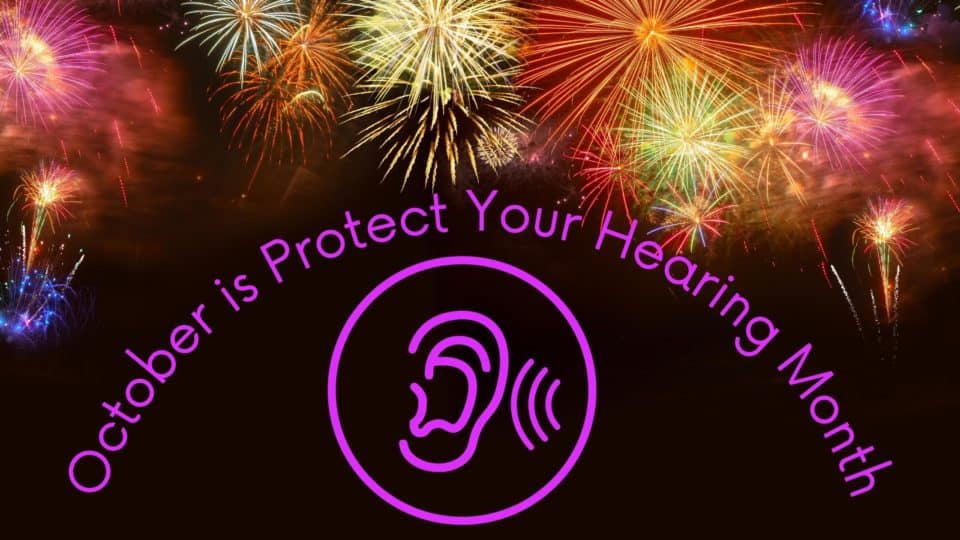- A Closer Look at Common Myths About Hearing Loss - May 7, 2024
- The Impact of Pets on Emotional and Hearing Health - April 26, 2024
- Strategies for Coping with Single-Sided Deafness - April 16, 2024
Are you wondering just how loud is too loud? This is a great question to ask because noise can cause permanent hearing loss. In fact, hearing loss is one of the most common health conditions facing Americans of all ages. That’s why we’re participating in National Protect Your Hearing Month to raise more awareness about noise-induced hearing loss and what you can do to protect your hearing.
How Hearing Works
Let’s start by looking at the hearing system. The outer ear directs sound waves down the ear canal to the middle ear or eardrum. The eardrum vibrates, and this vibration moves three tiny bones in the middle ear, called the ossicles. When these bones move, ripples form in the fluid-filled middle ear, called the cochlea.
Here’s where it gets interesting. Inside the middle ear, there are tiny hair cells called cilia. These cells move when the fluid in the inner ear ripples. These cells translate these ripples into electrical signals and send them up the auditory pathway to the brain. The brain interprets all these signals, and that’s how we experience sound.
Noise-Induced Hearing Loss
But when sounds are very loud, the cilia can get damaged. Loud sounds cause more ripples, and when these vibrations are too intense the hair cells get bent too far, causing damage. Once these cells are damaged, they stop sending signals to the brain, and you’ll experience noise-induced hearing loss.
How Common is Noise-Induced Hearing Loss?
Noise-Induced Hearing Loss is a lot more common than you might think. The CDC conducted a health interview and exam, and they found that roughly 1 in 4 Americans adults aged 20 to 69 had some noise-induced hearing loss in one or both ears! This could be up to 40 million adults with hearing loss.
How Loud is Too Loud?
Noise-induced hearing loss is very common, and you probably know several people with hearing loss. But how loud is too loud? The truth is that many everyday sounds can actually cause hearing loss. Any sounds louder than 85 decibels (dB) can cause hearing loss. the volume can damage your hearing, but the length of time you listen can damage your hearing as well.
If sounds are around 85 dB, you can listen for several hours without experiencing hearing loss. but as sounds get louder, you will experience hearing loss a lot faster. Sounds that are around 100 dB can lead to hearing loss in as little as 15 minutes. And when sounds are over 120 dB, sounds can happen in seconds.
Here are some sounds that can cause hearing loss:
- Working on a noisy construction site
- Working in a bar or crowded restaurant
- Commuting on the subway
- Attending a concert
- Driving a motorbike
- Mowing the lawn
- Listening to music with earbuds and turning up the volume too high
Many causes of noise-induced hearing loss are recreational. At work, we tend to protect our hearing. But during leisure activities, you might forget how loud is too loud, and risk your hearing health.
Think about the activities you do every day. Are any of them damaging your hearing?
The Effects of Hearing Loss
Hearing loss makes it harder to hear the sounds around you. But hearing loss also makes it hard to communicate. You might not notice hearing loss in other areas, but you will notice it during conversations. You’ll have a harder time following what’s being said. You may ask people to repeat themselves, or just give up because it’s too hard to hear. It can damage relationships, making you feel isolated and alone.
Protect Your Hearing
Noise-induced hearing loss is preventable. You can protect your ears and prevent hearing loss. Wear earplugs or earmuffs whenever you’re in places with a lot of noise. And remember to turn down your music so you’re not blasting loud sounds directly into your ears.
Next, book a hearing test and find out more about your hearing. We’ll show you exactly what sounds you’re hearing and what sounds you’re missing. If you do have hearing loss, we’ll help you find the perfect hearing aids that will help you hear at work, at home, and during leisure activities. Take control of your hearing health and join us for Protect Your Hearing Month!

